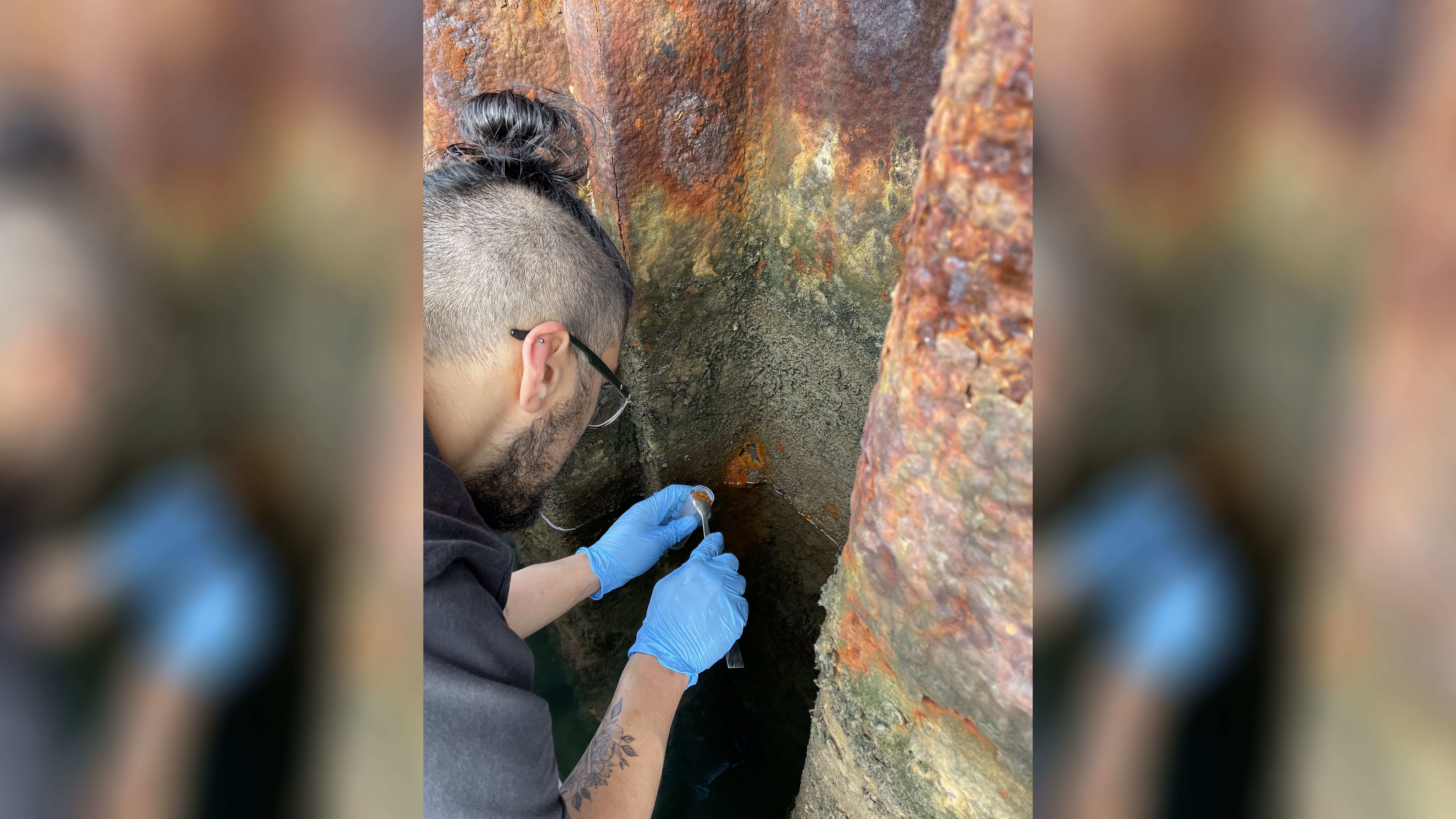Bug zapper: combatting bacterial rust with electricity

In summary
Swinburne PhD student Adam Thompson has won first place at the Australasian Corrosion Association’s Brian Cherry Award Forum for his research into bacterial rust
Microbiologically-influenced corrosion (MIC), as it is formally known, is a lesser known form of rust which can cause holes in the surface of metal
Adam’s research is investigating the use of electricity to combat MIC through a process called cathodic protection
Not all rust is created equal. While most of us are familiar with the kind occurring as a result of the chemical reaction between metal and water, rust caused bybacterial activity is lesser known – and often harder to combat.
But this could all change with the research being conducted by Swinburne PhD candidate Adam Thompson.
He is investigating the practice of using electricity to treat and prevent bacterial rust, or microbiological-influenced corrosion (MIC), as it is formally known.
So promising is Adam’s research that the Australasian Corrosion Association (ACA) awarded him first place at this year’s Brian Cherry Award Forum.
Bugged by rust
Adam is in the third year of his PhD after stumbling into the niche area during his undergraduate years.
He was struck by the significant impact of MIC and its ability to “drill holes” into the surface of metal.
“It’s a really big problem, particularly in marine environments,” he said.
“It affects a lot of wharfs and piers, so it can get pretty hairy if you have them falling over.
“It also affects a lot of ships and oil pipelines. If you get pinholes through the walls of your pipeline you can be losing a lot of oil and it impacts the environment, so it can become a real mess.”
Electrical currents are commonly used to treat chemical rust by altering the charge of different substances to prevent them reacting with each other. This process is called cathodic protection.
It hasn’t always been successful for MIC, but Adam’s research is addressing this gap.
“I am trying to clarify why it’s working in one situation but not in another,” he said.
“There are a number of standards out there that discuss using cathodic protection for MIC, and I’ve found from all my research these standards don’t tell you exactly what to do. They’re all quite wishy-washy for these microbial corrosion situations.”
Industry recognition
The Brian Cherry Awards Forum is named after Professor Brian Cherry of Monash University, renowned for his significant contribution to corrosion education.
Now in its 13th year, the award is open to postgraduates and final-year undergraduates across Australasia.
In the first round, students share their research in a ‘three-minute thesis’ presentation.
Up to four finalists are then invited back for a second round to present in a longer format, with the winner granted a $1,000 prize.
Adam’s PhD supervisor, Associate Professor Scott Wade, said Adam was up against very impressive competition, and all contestants should be commended for their presentations.
“We are hopeful that Adam’s work can provide some insights that can have a real-world impact on the multi-billion dollar problems that are caused by microbial corrosion,” he said.
“I’d also like to acknowledge the Australian Government that supports Adam with a Research Training Program Scholarship and the Defence Science Institute which provides him with a scholarship top-up.”
-
Media Enquiries
Related articles
-

- Technology
- Science
- Engineering
Victorian students drive green energy transition through international hydrogen competition
Swinburne’s KIOSC, in collaboration with Horizon Educational and Gippsland Tech School, co-hosted the Hydrogen Grand Prix in Melbourne.Friday 26 July 2024 -

- Science
Skin, scales and fish tails: using collagen to turn fish guts into gold
New research from Swinburne could transform the sector by converting high value collagen proteins from seafood by-products into cosmetics, food, and pharmaceuticals.
Tuesday 02 July 2024 -

- Science
- Engineering
Submarines in the future could self-identify cracks and self-heal thanks to Swinburne researcher
Thanks to the work of Dr Nisa Salim from Swinburne University of Technology’s School of Engineering, future submarines could self-identify microcracks and self-heal using a new kind of carbon fibre reinforced polymer composites.
Monday 17 June 2024

